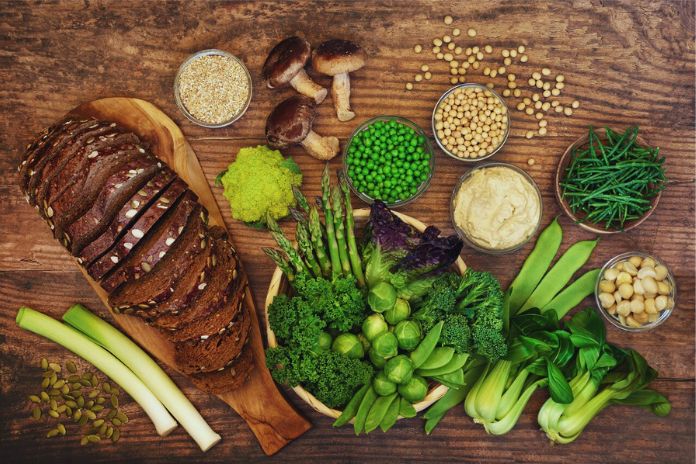Having a good diet is essential for people with diabetes, as, in addition to being the body’s maintenance fuel, it is the means of controlling the disease. Therefore, people with diabetes need to choose the foods to include in their diet according to factors such as the glycemic index, amount of carbohydrates and amount of sugar. But what can people with diabetes eat as much as they want?
Check out below the importance of good nutrition, which foods are safe for diabetics, and some tips on how to create a good diabetes diet.
Importance Of A Balanced And Healthy Diet
Adopting a balanced and healthy diet is essential for maintaining health at all stages of life. Some points that show the importance of a good diet for health include:
- Supply of essential nutrients: adequate intake of vitamins, minerals, proteins, carbohydrates and healthy fats, which play crucial roles in bodily functions such as energy production, strengthening the immune system, tissue development and repair, and contribute to the health of bones.
- Chronic disease prevention: Good nutrition is associated with a reduced risk of developing chronic diseases, such as heart disease, type 2 diabetes, obesity and some types of cancer. It also helps control blood pressure, reduce cholesterol levels and maintain a healthy weight.
- Body weight control: maintaining a diet that includes fibre and promotes moderate calorie consumption is essential for achieving and maintaining a healthy body weight. It helps provide a feeling of satiety, control appetite and avoid nutritional excesses and deficiencies.
Foods That People With Diabetes Can Eat Freely
Having a healthy and balanced diet is essential for controlling diabetes. People with diabetes need to make appropriate food choices so that blood glucose levels are stable.
Check out some foods that people with diabetes can eat as much as they want.
Non-Starchy Vegetables
Non-starchy vegetables are good options for diabetic people as they have few carbohydrates and are rich in fibre, vitamins and minerals. They help maintain satiety and control blood sugar levels.
Some of these vegetables include broccoli, cauliflower, spinach, peppers, carrots, lettuce, cucumbers and zucchini.
Fruits With A Low Glycemic Index
Although fruits contain natural sugars, there are some options with a low glycemic index, meaning they have less impact on blood glucose levels.
Some fruits with a low glycemic index include apples, pears, cherries, strawberries and blueberries. These fruits are also rich in fibre and antioxidants, bringing benefits to people with diabetes.
Lean Proteins
Lean proteins are essential for maintaining satiety, aiding in tissue repair and growth, and helping control blood glucose levels.
Some lean protein options for people with diabetes include chicken, fish, turkey, tofu and eggs.
It is recommended that people with diabetes avoid preparing these proteins with saturated fats, such as fried foods, and opt for healthier preparation methods, such as grilling, cooking or baking.
Oilseeds
Nuts are beneficial for people with diabetes as they are rich in healthy fats, fibre and proteins. However, they should be consumed in moderate portions as they are high in calories. Nuts can be consumed as a healthy snack or added to salads, yoghurts or other healthy dishes.
Some examples of beneficial nuts include walnuts, almonds, chestnuts, pistachios and chia seeds.
Sugar-Free Drinks
Good hydration is essential for health. People with diabetes need to opt for unsweetened beverages such as water, unsweetened teas, unsweetened coffee, and water infused with citrus fruits or herbs.
Drinks high in sugar, such as soda and sweetened juices, can raise blood glucose levels quickly.
Foods Diabetics Should Limit
There are certain foods that people with diabetes should limit their consumption of because they can negatively affect blood glucose levels.
Check out the foods that people with diabetes should consume in reduced portions below.
Refined Carbohydrates
Refined carbohydrates are quickly digested and absorbed by the body, which can cause a rapid rise in blood sugar levels. Therefore, it is recommended that people with diabetes limit or avoid the consumption of these foods, opting for complex carbohydrates, such as whole grains, vegetables and fruits with a low glycemic index.
Examples of refined carbohydrates include sugar, white flour, candy, cakes, cookies, soda, and processed foods that contain added sugar.
Fruits With A High Glycemic Index
Fruits are healthy food options. However, people with diabetes need to pay attention to those who have a high glycemic index because they can quickly raise blood sugar levels.
Some examples of fruits with a high glycemic index include bananas and grapes, and it is recommended that people with diabetes limit their consumption and opt for fruits with a low glycemic index, such as apples, pears, cherries and strawberries.
Saturated And Trans Fats
Saturated and trans fats can worsen diabetes control, as well as increase the risk of developing heart disease, which are common health complications of diabetes.
These fats are mainly found in animal products such as fatty meats, chicken skin, full-fat dairy products, butter and hydrogenated vegetable oils.
Therefore, people with diabetes should limit their consumption of these foods and opt for healthy fats, such as those present in avocado olive oil, and fatty fish, such as salmon and sardines.
Sugary Drinks
Sugary drinks, such as soft drinks, processed juices and energy drinks, are rich in added sugar and contain a high level of simple carbohydrates. Therefore, these drinks can quickly raise blood glucose levels.
Therefore, it is recommended that people with diabetes limit or altogether avoid the consumption of these drinks and opt for water, tea without added sugar, coffee and water infused with citrus fruits or herbs.
Also Read: Intermittent Fasting Helps Prevent Diseases

